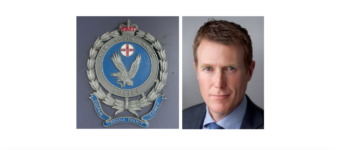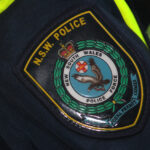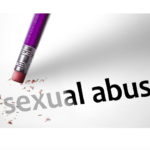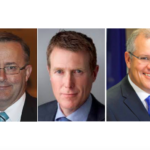NSW Police Rejected Three Opportunities to Take Statement on Porter Accusations

It was all very clear cut. Following former attorney general Christian Porter’s 3 March admission that he was the accussed in an historic rape claim, PM Scott Morrison said there would be no independent investigation, as the allegations were a police matter.
NSW police chimed in that its inquiry was closed as it had no official statement from the woman making the claim, as she hadn’t provided one prior to taking her own life last June. And officers would have travelled to South Australia to interview her last March, but COVID prevented the trip.
However, questions were then raised in parliament. SA Greens MLC Tammy Franks put questions to the local minister on 16 March, asking why NSW police would have been restricted from traveling to her state, as the dates for the planned trip were prior to its official border closure.
And last Thursday, during an SA upper house committee hearing it was clearly stated that there were no restrictions ever for police, as law enforcement travel matters were deemed “essential”, meaning they were permitted.
Meanwhile, back in this state, NSW Greens MLC David Shoebridge moved a 17 March order, calling for NSW police to produce all documents relating to Strike Force Wyndarra: the team of officers established on 1 November 2019 to investigate the sexual assault allegations.
Shoebridge has since received a dossier of close to 70 pages, which confirms not only was there no restriction coming from SA in regard to NSW police travelling to its jurisdiction, but it reveals our state’s law enforcement body knocked back three opportunities to obtain that official statement.
Opportunities lost
The woman who made the claim initially met with NSW Sex Crime Squad detectives at Kings Cross police station on 27 February 2020. At that time, she was not ready to go on the record. And an interview meeting with NSW police officers was later scheduled for 16 March in Adelaide.
Documents reveal that detective senior constable Samantha Meredith made a 10 March SA travel request. It was approved by three levels of command prior to deputy commissioner David Hudson knocking it back due to an internal travel restriction policy on matters deemed non-essential.
On learning that officers wouldn’t be traveling, Porter’s accuser then stated she wanted to conduct the interview promptly via phone or Skype. However, Wyndarra officers held a teleconference with her on 2 April, advising that for “various reasons” this method wouldn’t be appropriate.
From there, after suggesting to SA police that it take the statement, an Adelaide sergeant emailed NSW police stating she’d be “more than happy to help” on 1 May. But, on receiving the offer, local police decided to wait without even consulting the woman on whether she was interested in this option.
On 23 June last year, the woman went on to email Wyndarra officers, explaining she no longer felt up to pursuing the matter. And on the following day, she took her own life.
Until it was too late
In a statement to Sydney Criminal Lawyers, Shoebridge stressed that it’s hard to believe NSW police rejected all the opportunities it had to obtain the official account of the incident from the woman accusing Porter of an historic rape.
The Greens justice spokesperson also questioned how the NSW deputy commissioner could class a criminal investigation involving allegations with such high-level implications wasn’t a necessity.
“This decision is deeply troubling because I can’t imagine something more important or essential for the NSW police than investigating an alleged sexual assault,” he said, adding that’s still harder to understand considering “the person of interest in the investigation had a ‘very high profile’.”
And in regard to the decision not to take up the offer from South Australia police to carry out the interview on its side, Shoebridge said, “This was a critical decision that led to months more delay during which the complainant tragically took her life.”







